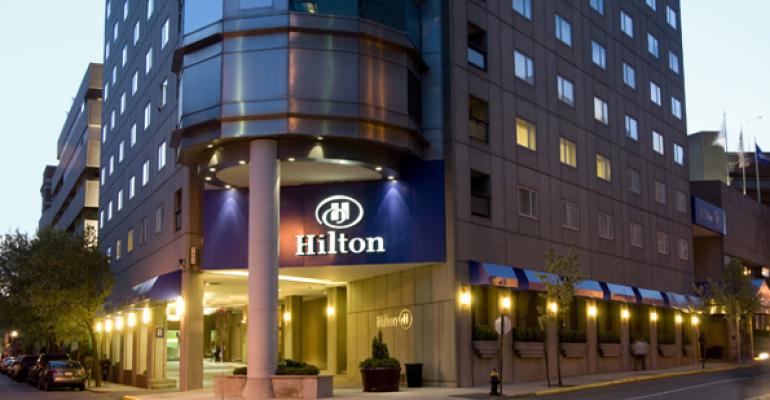Private equity giant Blackstone continued it hotel-buying binge in late May with a $3.7-billion cash agreement to buy LaSalle Hotel Properties. It’s just the latest giant deal for Blackstone, which closed its purchase of a portfolio of hotel properties from GIC in April, including the Grand Wailea Resort & Spa in Maui, Hawaii.
“There is a wall of capital that needs to find deals to invest in,” says Jim Costello, senior vice president with research firm Real Capital Analytics (RCA). “The volume of deals is rising again for hotels.”
Blackstone beat out more than a dozen other potential buyers interested in LaSalle, even though the average occupancy rates and room rates for hotel properties in the U.S. are now at or near historic highs. Investors like Blackstone are drawn to the strong, long-term demand they see for hotel properties.
Blackstone wins the bidding war
Blackstone’s offer for LaSalle beat out a cash-and-stock offer from LaSalle’s rival in the hotel business, Pebblebrook Hotel Trust, among other potential buyers.
“We are thrilled to acquire LaSalle and have the opportunity to invest in its high quality urban hotel portfolio,” says Tyler Henritze, head of U.S. real estate acquisitions for Blackstone. Expected to close in the third quarter, the Blackstone deal values LaSalle, a publicly-traded company, at $33.50 per share. That’s a 5.0 percent premium above the closing price of LaSalle’s shares on May 18, before the deal was announced.
Talk of a potential deal began earlier this year when Pebblebrook made its first, unsolicited offer to buy LaSalle. LaSalle had already put a strategic plan in action to enhance the value of the company. Buyout offers gave the company’s shareholders an opportunity to collect on that potential value more quickly.
“The company and its advisors contacted 20 potential buyers, including strategic parties, brands and private equity firms. As a result, 10 potential buyers executed confidentiality agreements and received non-public information, and the board engaged in extensive negotiations over price and terms,” says Stuart L. Scott, chairman of the board of LaSalle.
Pebblebrook had offered an even bigger price tag than Blackstone, in an offer that worked out to $35.89 per share, based on the May 18 closing price. But Pebblebrook offered to pay only 20 percent of that price in cash, and the rest in stock. The bidding war for LaSalle had gone for some time, including an earlier offer from Pebblebrook on April 20 at $31.75 per share, according to Reuters.
Blackstone earns triple its investment in Hilton sale
Private equity fund managers like Blackstone often buy real estate assets such as hotels opportunistically, with an intent to add value and eventually sell at a significant profit, often within five to 10 years.
For example, on May 18, Blackstone sold the last piece of its ownership stake in Hilton Worldwide Holdings, which it bought in the days just before the financial crisis. Blackstone owned Hilton for nearly 11 years—a little longer than usual for private equity—during which time it brought in a new CEO, sharply increased the number of hotel rooms and invested more than $6.5 billion in the properties. Blackstone’s profits from its ownership of Hilton were reportedly triple its investment.
The deal to buy LaSalle may be a little different—occupancies in the LaSalle portfolio are already strong and demand for hotel rooms overall in the U.S. is already at historic highs, unlike the days just before the crash. LaSalle has also already begun a strategic plan that is priced into the deal.
“It will be hard for investors in hotel properties today to deliver the kind of upside that you saw in earlier deals,” says Costello.
Instead, hotel properties today benefit from what looks like strong, long-term demand for rooms, keeping occupancies full and room rates inching higher even as developers open new properties. In particular, investors who worry about inflation can benefit from buying hotel properties, which can increase their operating income quickly as prices rise in the larger economy.
“If you are looking for a hedge against inflation, there is a chance to increase hotel room rates daily,” notes Costello.





